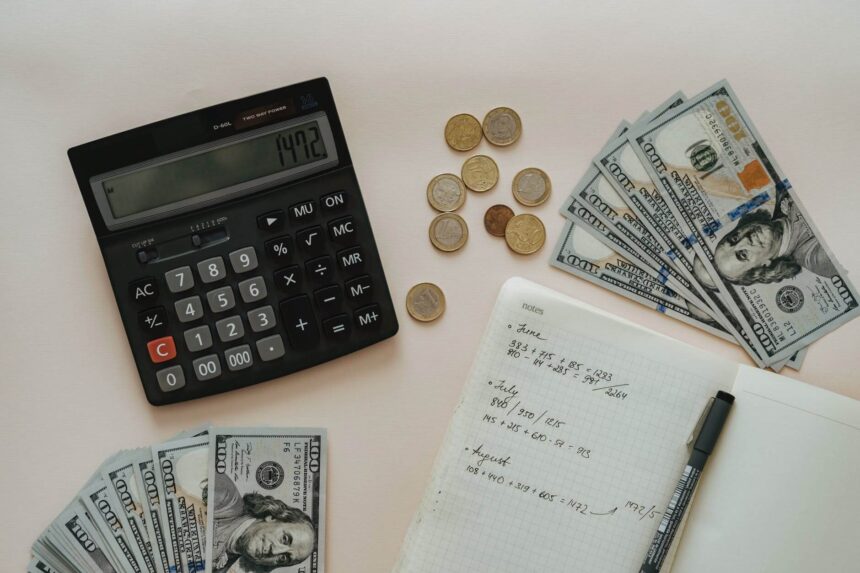An emergency fund is a savings account that you set up to cover unexpected expenses. Emergencies can be anything from a car repair to a medical bill. The important thing is that you don’t have the money to cover these expenses already saved up.
Ideally, your emergency fund should have enough money to cover at least three months’ worth of living expenses.
That way, you’ll be able to handle the most unexpected costs without having to borrow money or dip into other savings accounts.
What is an emergency fund, and why do you need it?
Having an emergency fund is especially important for people who do not have sufficient health insurance coverage.
Most people with high deductible health plans turn to their emergency funds during emergencies, followed by taking on debt.
Why do you need it? Because emergencies happen. Preparing for the unexpected is a smart move.
No matter how you decide to start your emergency fund, remember that it’s an essential part of planning for financial security. Make sure you have one before you need it!
How to create an emergency fund.
Establish emergency savings account with your bank and set aside money from each paycheck into it, just like you would with a regular checking or savings account.
If you have been consistently saving in this way for at least three months, then congratulations! You have already created an emergency fund for yourself!
How to use your emergency fund
If you find yourself in a situation where you need money, take what you need from this account. Your emergency fund should be there for emergencies only.
What happens if you don’t have an emergency fund? You could get into deep debt or struggle to pay for your necessities.
Alternatives to an emergency fund
You could open high-interest savings account at your bank where you can keep funds that are not as liquid as cash.
You can also increase your income to have more money coming in each month. This action means less reliance on funds set aside for emergencies.
Make a plan to improve your financial habits by learning more about how money works.
No one knows when an emergency might strike. It could be a car accident, a natural disaster, or losing your job.
Whatever the reason, it’s essential to have emergency cash in place to help you get through those tough times.
Here are ten tips to help you build an emergency fund quickly and easily.
Tips to Build an Emergency Fund
1. Have a plan
Every good idea starts with a plan, and saving money is different. Sit down and figure out how much you want to have in your emergency fund.
Please write it down somewhere so that you remember what your goal is. Then create steps to get there, such as committing yourself to deposit $50 into savings each week.
Having a plan will help keep you on track and work towards your goal.
2. Start small
Don’t be intimidated by how big your goal may seem. You can start small and then work your way up once you get the hang of saving regularly.
Even if it’s only $20 a month, that’s still better than nothing at all!
3. Automate your savings
Once you know your desired end goal and have worked out the steps to getting there, it’s time to make it as easy as possible for yourself to follow through with those steps. That means automated savings!
Set up an automatic transfer from checking into savings so that even if you forget about it now (or in the future), money will automatically go where you want/need it to. It’s like magic!
4. Cut back on expenses
Look at your budget and see where you can cut back on spending. Maybe that means getting rid of cable or cutting out Starbucks every day.
Having more money in savings will help soften the blow if an emergency happens, so it’s worth giving up some luxuries for a while to get there!
5. Sell unused belongings
Do you have items lying around the house collecting dust? Put them to good use by selling them online or in a garage sale!
This tip is an easy way to create quick cash for your savings fund, and most likely, you won’t even miss these things!
6. Bring in extra income
Extra work never hurts anybody! Consider picking up a part-time job, taking on a second job, or even doing freelance work for cash.
Sometimes, money can make a difference, and extra income is always good to have in the bank.
7. Make the most of windfalls
Getting unexpected cash can be pleasant or inconvenient, depending on how you choose to spend/save it.
If you end up with extra money after paying your bills every month, try putting half of that into savings and using the other half towards fun things (not splurging) so that both are covered!
8. Invest money wisely
Before deciding where to put your savings, consider the rates of return for different types of accounts. Certain types of savings accounts offer better returns than others for your money.
9. Have fun along the way
Saving isn’t all work and no play! Be sure to reward yourself for meeting little milestones in your goal to stay encouraged throughout the process.
After depositing $100 into your savings account, go out to dinner or buy something nice for yourself.
Staying motivated can help you reach your goal faster, so it’s worth spending a little bit of money on those rewards!
10. Stay disciplined
Some of the most successful people in the world have mastered self-discipline.
Consider signing up for a blog with daily or weekly content about living frugally, not buying things you don’t need, and staying motivated to accomplish your goals. This tip will help you practice self-control when it comes to money matters!
Keep these tips in mind as you continue building your emergency fund, and soon enough, it’ll be time for #11 on this list – saving up for more necessary purchases like vacations, cars, down payments on houses. The sky’s the limit!
Thank you for reading my article. Please comment and share if you found this helpful! 🙂







